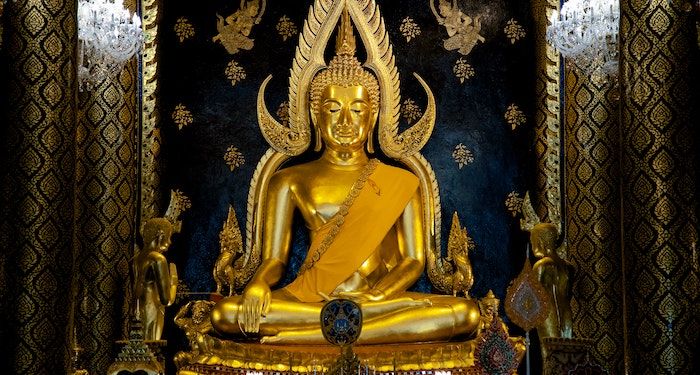According to Dictionary.com, Buddhism is “a religion […] holding that life is full of suffering caused by desire and that the way to end this suffering is through enlightenment that enables one to halt the endless sequence of births and deaths to which one is otherwise subject.” That’s a whole lot to take in. I like to think of Buddhism as a conscious way of life. It’s a school of thought that focuses on working towards and being grateful for an inner peace. It allows us to get in touch with who we actually are at our core. Maybe this is a bit difficult to follow, too. The last time I wrote about Buddhism, I offered books that may explain all this in greater detail. Additionally, Buddhist writings lend themselves to poetry. They share pretty language and decorated verse. Check out these Buddhist-inspired works to explore your own Buddhism while getting your poetry on.
A Full Load of Moonlight: Chinese Chan Buddhist Poems by Mary M.Y. Fung (Translator) and David Lunde (Translator)
This book of translations offers poems from Chan monastics and lay people. The poems in both sections date back to the early 600s CE. They run through the centuries up to the more recent 1800s (that doesn’t seem recent, but in comparison to three-digit-years, it’s closer to today). Chan Buddhism has a Chinese foundation; the introduction explains simply, “Chan is a state of mind and a way of life.” If you typically skip introductions, do your best to not skip this one. It explains pretty simply the background of Chan Buddhism, upon which these 180 poems are based. Another neat feature of this collection is that the original poems (in Chinese characters) appear above the translations. A lot of the poems have themes of the natural world, and that’s because a lot of Buddhism reflects the natural world, which includes the world of the mind.
Songs of Spiritual Experience: Tibetan Buddhist Poems of Insight and Awakening by Thupten Jinpa and Jas Elsner
This collection presents poems from the 11th Century through today. These 52 poems are broken down into thematic sections, so you can find a theme that strikes you rather than follow a chronology. You can choose from the transience of life, solitude, finding a guru, emptiness, awakenings, and mystic visions. There’s also a section of poems that focus on the life of the poets in a Buddhist, reflective way. To help along with understanding the philosophies in the verses, there are several introductions, a glossary, and notes. Basically, this book can act as a class in Tibetan Buddhism and poetry all at once. Plus, the poems are pretty. That’s always a plus.
The First Free Women: Poems of the Early Buddhist Nuns by Matty Weingast and Bhikkhuni Anandabodhi (Foreword)
I find this collection fascinating—it’s poems by the first Buddhist nuns, the first official female practitioners of Buddhism. These poems, Versus of the Elder Nuns, or the Therigatha, portray the life and emotions of these women with a Buddhist reflection. Though some poems are unfinished, they all offer insight into the beginnings of a school of belief from incredibly unique points of view. There is struggle, and there is love.
The World I Leave You: Asian American Poets on Faith & Spirit by Leah Silvieus (Editor) and Lee Herrick (Editor)
The poems in this collection are not all about Buddhism. Some are, while others venture into different religions and beliefs. These poets of the Asian diaspora present their own faiths and personal experiences through verse. If your way to Buddhism is to explore a variety of wisdoms in a more contemporary framework, you may want to start here.
Call Me By My True Names: The Collected Poems of Thich Nhat Hanh
Thich Nhat Hanh is a Buddhist monk, and his writings are widely known. Through poetry and prose, he clearly and simply offers wisdom. Really, any description I write here can’t quite explain how his clarity and simplicity offer more than any high-falutin’ explanations of Buddhism. Read the poems, and you’ll see what I mean.
Poetry is a natural way into Buddhism. The texts speak to each other in a way that prose may not be able to. If you want to explore more, you can read the books listed here. Much gratitude for reading.





